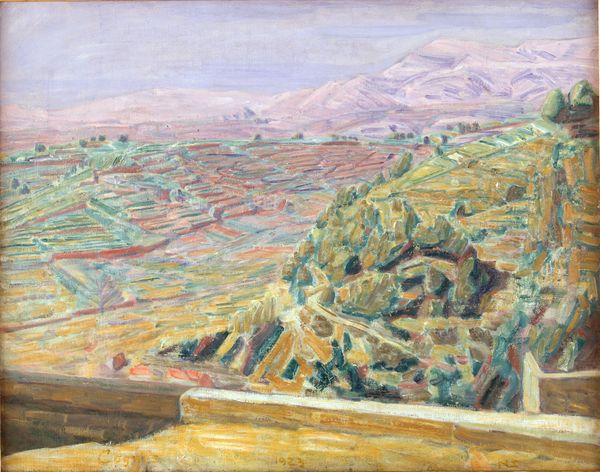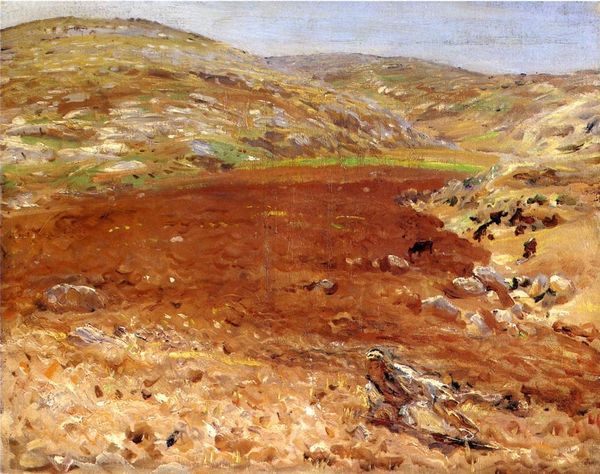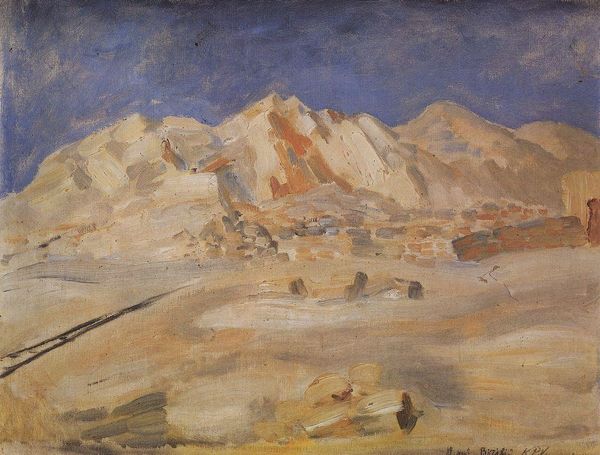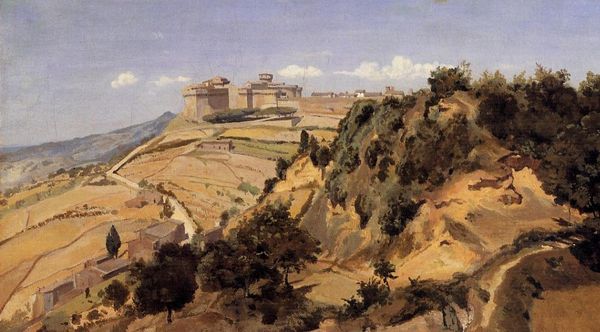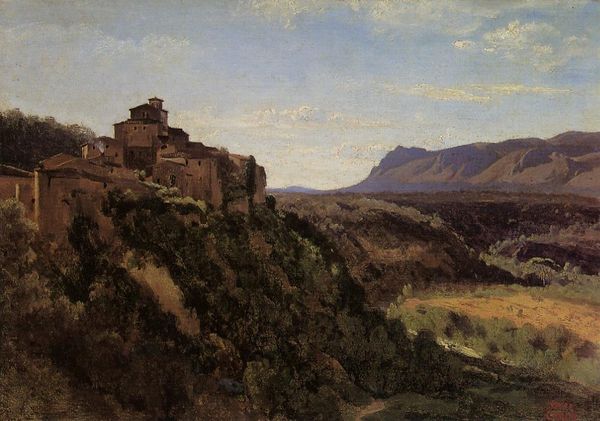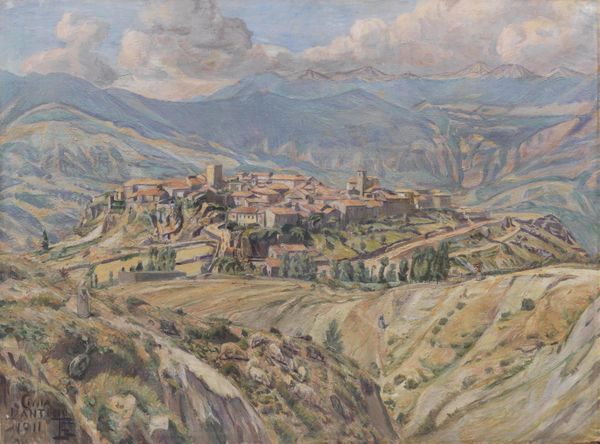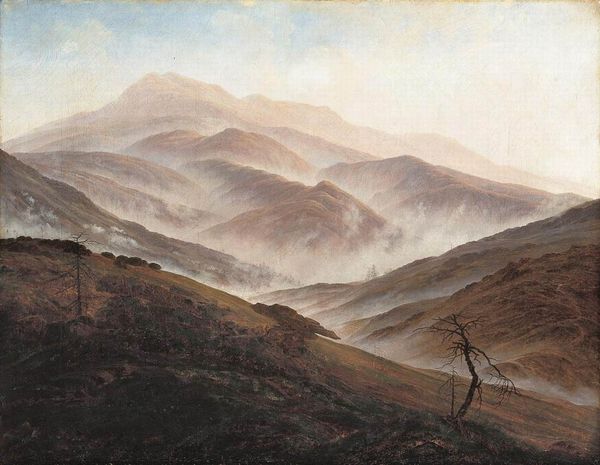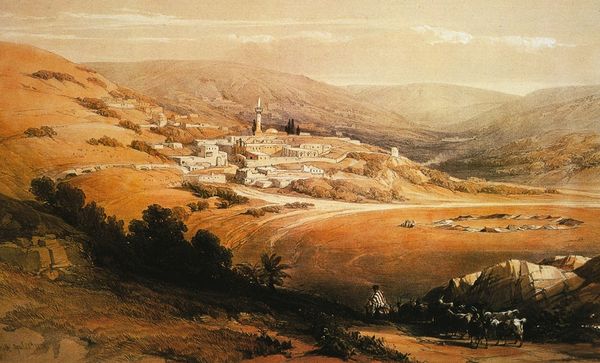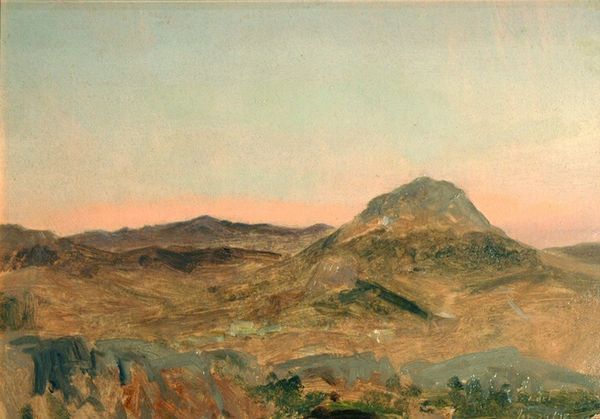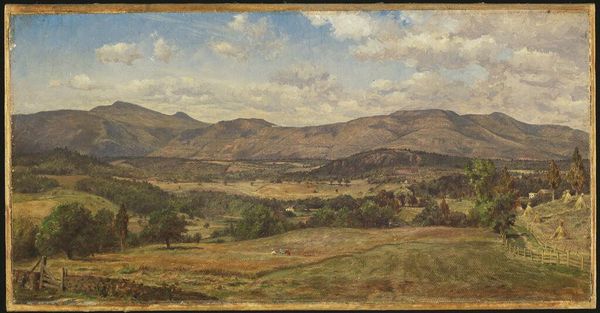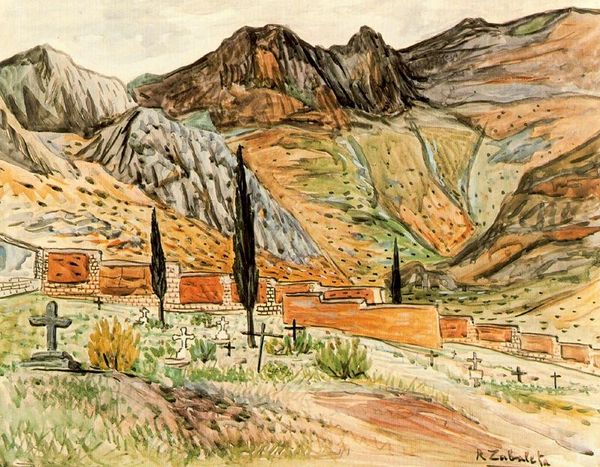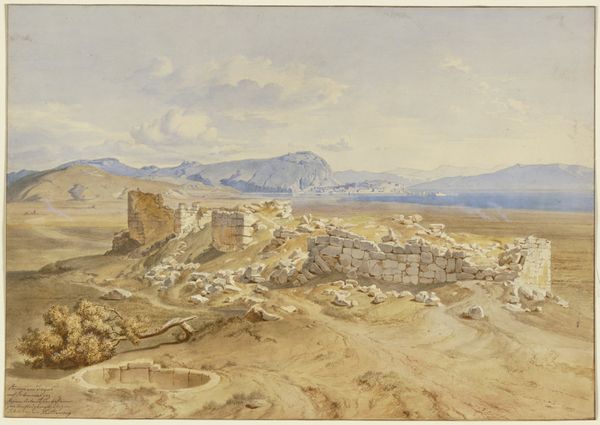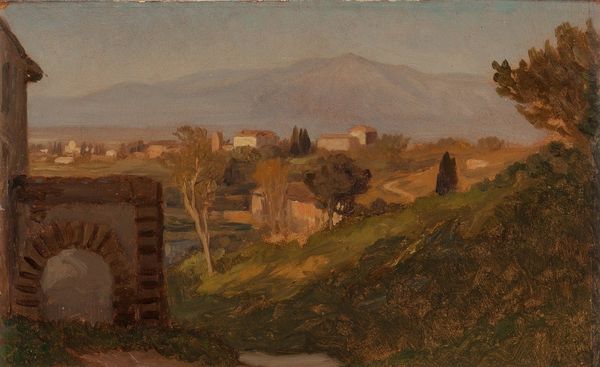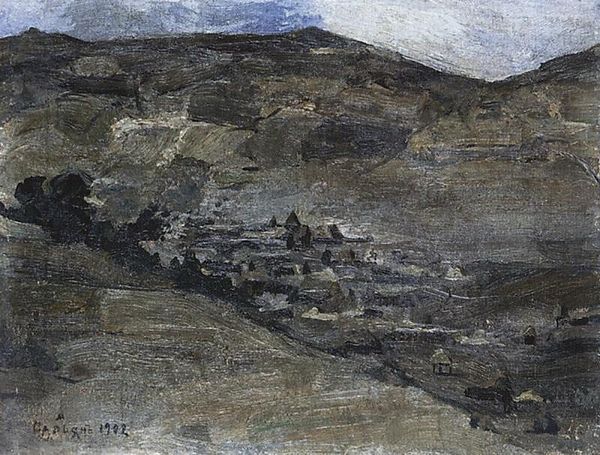
painting, plein-air, oil-paint
#
painting
#
plein-air
#
oil-paint
#
landscape
#
oil painting
#
mountain
#
orientalism
#
natural-landscape
#
cityscape
#
realism
Dimensions: 28.57 x 47.62 cm
Copyright: Public domain
Editor: This oil painting presents a view of "Village in Atlas Mountains, Morocco," attributed to Edwin Lord Weeks. I’m struck by the juxtaposition of the imposing, almost bleached-looking mountains and the clustered, reddish-brown architecture. It feels like a dance between the natural and the man-made. How do you interpret this kind of landscape through a historical lens? Curator: That's a perceptive reading. This piece is quite interesting when considering Orientalism, a 19th-century movement where Western artists depicted "exotic" Middle Eastern and North African scenes. Weeks himself traveled extensively in these regions. We have to ask, to what extent does this painting present a genuine observation, and how much does it conform to the prevailing Western gaze and colonial power dynamics? Editor: So, you’re suggesting we look beyond just the landscape and consider the artist’s position and motivations? Curator: Precisely. Think about what details are emphasized or omitted. Are the local inhabitants depicted? If so, how? What stories are being told – or not told – about the power structures inherent in such a landscape? Weeks' choice of subject matter and artistic style, influenced by European realism, implicitly assert a certain dominance of vision. The “realism” flattens cultural nuance by subsuming unique visual aesthetics of the time. What might a Moroccan artist of the same period have created, by contrast? Editor: That brings a totally different angle. I initially just saw the beauty, but now I realize there are deeper cultural and political layers embedded here. Curator: Absolutely. The apparent “truth” in this kind of painting always requires us to ask critical questions about whose truth is being represented, how, and for what purpose. Editor: Thanks for sharing these considerations. It makes me think more deeply about the role of art in shaping perceptions of different cultures. Curator: Indeed. Recognizing art's public role and political implications transforms our viewing experience.
Comments
No comments
Be the first to comment and join the conversation on the ultimate creative platform.
